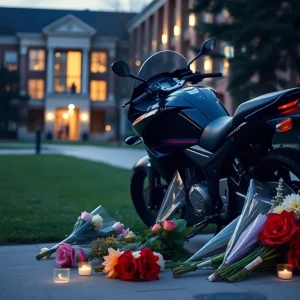South Carolina’s Execution Methods Ready to Go, Says Prison Director
COLUMBIA, S.C.— In a move that sends waves across South Carolina’s criminal justice system, the state’s prison director made a dramatic announcement: lethal injection drugs are ready, the electric chair has been tested, and a firing squad is prepared to carry out the state’s first execution in more than 13 years.
Execution Methods Certified
Corrections Director Bryan Stirling was ordered by the state Supreme Court to present a sworn statement to Freddie Owens’ lawyer confirming that all three methods of execution—lethal injection, electric chair, and firing squad—are ready for Owens’ scheduled execution on Sept. 20.
Upon receiving Stirling’s statement, Owens’ lawyers have asserted that they will conduct a thorough review. If they find any inadequacies in the statement, they plan to appeal to the state Supreme Court or federal judges.
Legal Complications Arise
This is one of at least two areas of legal disagreement between the state and Owens in the lead-up to September’s execution date. Owens has until Sept. 6 to choose his method of execution, and he has assigned power of attorney to his lawyer, Emily Paavola, to decide for him. The state Supreme Court has accepted a request from the prison system to examine whether this delegation of choice is permissible under South Carolina law.
Execution Drug Stability Assured
Stirling stated in his sworn statement that two vials of the sedative pentobarbital, intended for use in lethal injections, were tested by technicians at the State Law Enforcement Division laboratory. They ended up reporting that the drug is stable, pure, and, according to guidelines from jurisdictions with similar execution methods, potent enough to cause death.
Preparations for Other Execution Methods
The state’s electric chair, constructed in 1912, was examined on June 25 and was found to be functioning accordingly. Additionally, Stirling confirmed that a firing squad, approved by a 2021 law, is also ready with necessary ammunition and training. Three volunteers have undergone training to set their aim at a target placed on the heart from a 15-foot distance.
Owens’ Case
Owens, 46, was sentenced to death for the murder of convenience store clerk Irene Graves in Greenville in 1997. Prosecutors allege that Owens and his friends committed several robberies prior to the crime. One of the friends testified that Owens shot Graves in the head after she was unable to open the store safe. However, surveillance did not clearly identify the shooter. Following his initial murder trial conviction in 1999, authorities declared that Owens killed his cellmate at the Greenville County jail before a jury could determine his sentence.
Elusive Clemency
In South Carolina, the governor exclusively holds the power to grant clemency and commute a death sentence to life imprisonment. However, no governor has done so in the state’s 43 executions since the reinstatement of the death penalty in the U.S. in 1976. Current Governor Henry McMaster has stated that he will not reveal his decision until the prison officials contact him from the death chamber minutes before the execution.








